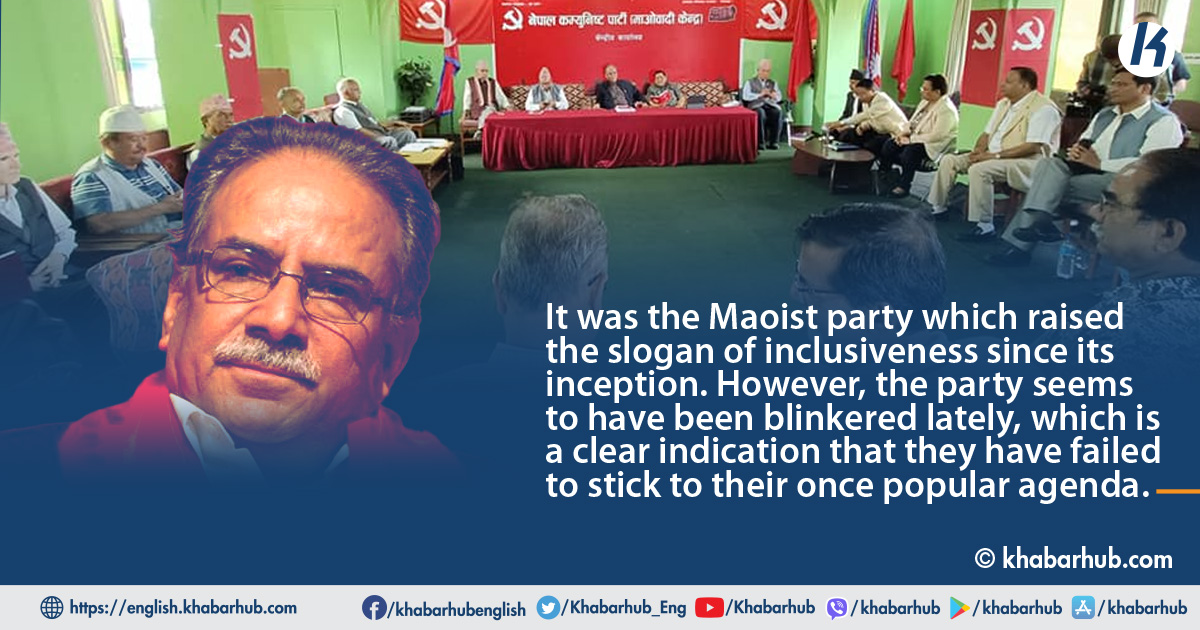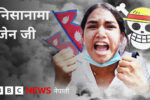KATHMANDU: Perhaps, not in the wildest of their dreams, had the Maoist leaders and cadres thought that their “great revolutionary” party would start limping on the agendas they established rather than taking them to new heights.
The then CPN-Maoist started a decade-long armed conflict under the leadership of Prachanda, dubbed a “fierce one”.
And interestingly, when Prachanda started the Maoist rebellion in 2052 BS, he had the support of several intelligent and influential individuals.
Maoist Supremo, Prachanda, who got the reins of the party from Mohan Baidya in 2046 BS – has been continuously at the helm of the party since then.
Prachanda was the chief when the party announced an armed conflict – “People’s War” in their own words. He was still the commander when the party signed a 12-point agreement with the mainstream political parties.
The party is in Singha Durbar now and Prachanda is still the “Supremo”, and independent political pundits term it a sort of “despotism” within the party because no leader has dared to challenge Prachanda.
Despite this, Prachanda has not been visibly impacted. Disgruntled leaders who have left the party have been reminding Prachanda and his party about the “pro-people slogans”, issues and agenda that the party had raised during the decade-long conflict.
And if they do, they know they would “face consequences” like several former Maoist leaders.
The extreme tendency of not being able to hand over leadership, and showing favoritism in the name of the authority is growing rapidly within the Maoist Center lately.
Consider this: The party succeeded in giving a full shape to its office bearers on Saturday months after Prachanda was elected the party Chairman. But is it inclusive in nature?
Unfortunately, there has been a tendency to use all power to oust or demoralize anyone inside the party challenging Prachanda or discredit him/her by involving in some indecent act.
A situation has arisen where leaders, trapped in the greed of power, engage in appeasing their supremo to make a place in the party’s committees.
Observers have to say that the Maoist leadership has compelled the party leaders and cadres to suffer great injustice in order to bring all decisions in its favor.
This tendency has discredited the once powerful Maoist party day by day.
Despite this, Prachanda has not been visibly impacted. Disgruntled leaders who have left the party have been reminding Prachanda and his party about the “pro-people slogans”, issues and agenda that the party had raised during the decade-long conflict.
Prachanda, who once carried the agenda of inclusiveness, equality, participation, equal opportunities, and good governance, among others, has trampled on the agendas.
Becoming despotic
Former Maoist leaders such as Mohan Baidya Kiran, Dr. Baburam Bhattarai, Ram Bahadur Thapa Badal, and Netra Bikram Chand “Biplav”, who revolted due to Prachanda’s whimsical tendencies, have left the party.
They are no more with Prachanda.
Even now, there is a growing division within the Maoists. Unfortunately, the leaders of the top brass neither give attention to the leaders of the lower level nor do they give them a position.
However, Dr. Bhattarai has once again joined hands with Prachanda just to win the November 20 election.
Lately, people are confused. And they ask, “Is Prachanda leading a company or a party?
There seems to be a strong tendency to trap the leaders claiming leadership in their own weaknesses.
As a result, the possibility of them coming close to Prachanda is diminishing, according to some leaders.
Contradictory: Loud slogans of inclusion, making office bearers non-inclusive
The Maoist party raised the most inclusive slogan since its inception. But the Maoist party that shouts that slogan is in the middle-of-the-road and a conformist.
As a result, the Maoists have not been able to stick to their agenda even if they wanted to.
Let me come back to the recently finalized names of the office bearers. Among them, there is only one woman, a quite a few leaders representing the Madhesi community.
And what about the representation of Dalits in the office bearers? Or is it that the party leadership has forgotten the contribution and sacrifices of a significant number of Dalits in the decade-long insurgency
Now that it has become clear that raising the issue of equal participation/representation of all communities in all ranks and files of the party was a mere ploy to hoodwink the Dalit community, and to use them to rise to power.
Even now, there is a growing division within the Maoists. Unfortunately, the leaders of the top brass neither give attention to the leaders of the lower level nor do they give them a position.
What is for sure is that the top leaders of the once revolutionary party have discarded and disregarded the issue of inclusion after coming to power.









Comment